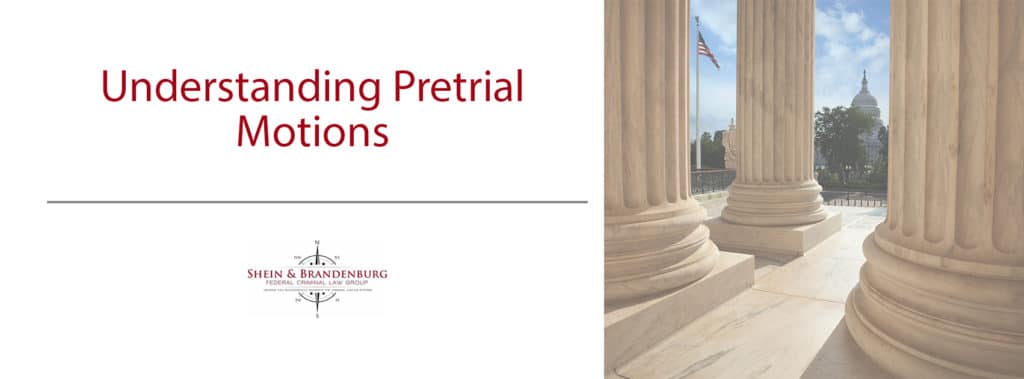In a large number of federal criminal cases, the defendant either makes a plea agreement or proceeds to trial. In some cases, however, a criminal defense attorney can help to have charges removed before trial through the use of a motion to dismiss. As a result, the pretrial motion is a particularly helpful tool for people who want to have criminal charges removed. To file the strongest pretrial motion possible as well as to discover available options in filing these motions, many people find it is essential to obtain the assistance of a knowledgeable attorney.
The Role of Pretrial Motions
Before a criminal trial commences, both sides must make pretrial motions, which are requests of the judge made before trial. While pretrial motions are frequently in writing, some judges also permit these motions orally. A large number of pretrial motions are requested to either admit or exclude certain evidence at trial. For a criminal defendant, obtaining a dismissal is often the best option. Successful motions to dismiss are capable of sparing the defendant potential punishment.
Situations that Warrant a Pretrial Motion
Some of the situations that justify a pretrial motion to dismiss include the following examples:
- The defendant’s right to a speedy trial has been violated.
- The prohibition against double jeopardy has been violated.
- The statute of limitations is expiring.
The Common Types of Pretrial Motions
Some of the most common types of pretrial motions include:
- Motions for a change of venue. A venue refers to the location in which a criminal trial occurs. An example where this motion might be requested is when a venue would result in undue publicity, when the crime did not occur there, travel costs, witness locations, and many other reasons.
- Motions to compel production of evidence or testimony. This motion is often used to request that courts order parties provide evidence. These motions can even apply to evidence that can help to establish a person’s innocence.
- Motions to dismiss a charge or case. These motions ask a judge to dismiss certain charges or even an entire case. Some of the common reasons why these motions are filed include excessively lengthy procedures that violate a person’s right to a speedy trial. Another example includes if the double jeopardy clause is violated and a defendant faces a second trial in relation to an original offense. If this motion is accepted, a trial will often be avoided.
- Motions to suppress evidence or testimony. In many situations, these motions apply to evidence that was illegally obtained. An example would include evidence that was seized in violation of the Fourth Amendment, which protects against unreasonable searches or seizures. If a judge accepts the motion, the evidence or testimony in question will be excluded from the trial.
Obtain the Services of a Seasoned Criminal Defense Lawyer
If you or a loved one is considering appealing a federal criminal case, you likely need the assistance of strong legal representation. Consult with an attorney at the Federal Criminal Law Center today to obtain legal counsel that will remain committed to obtaining the best possible outcome in your case.


